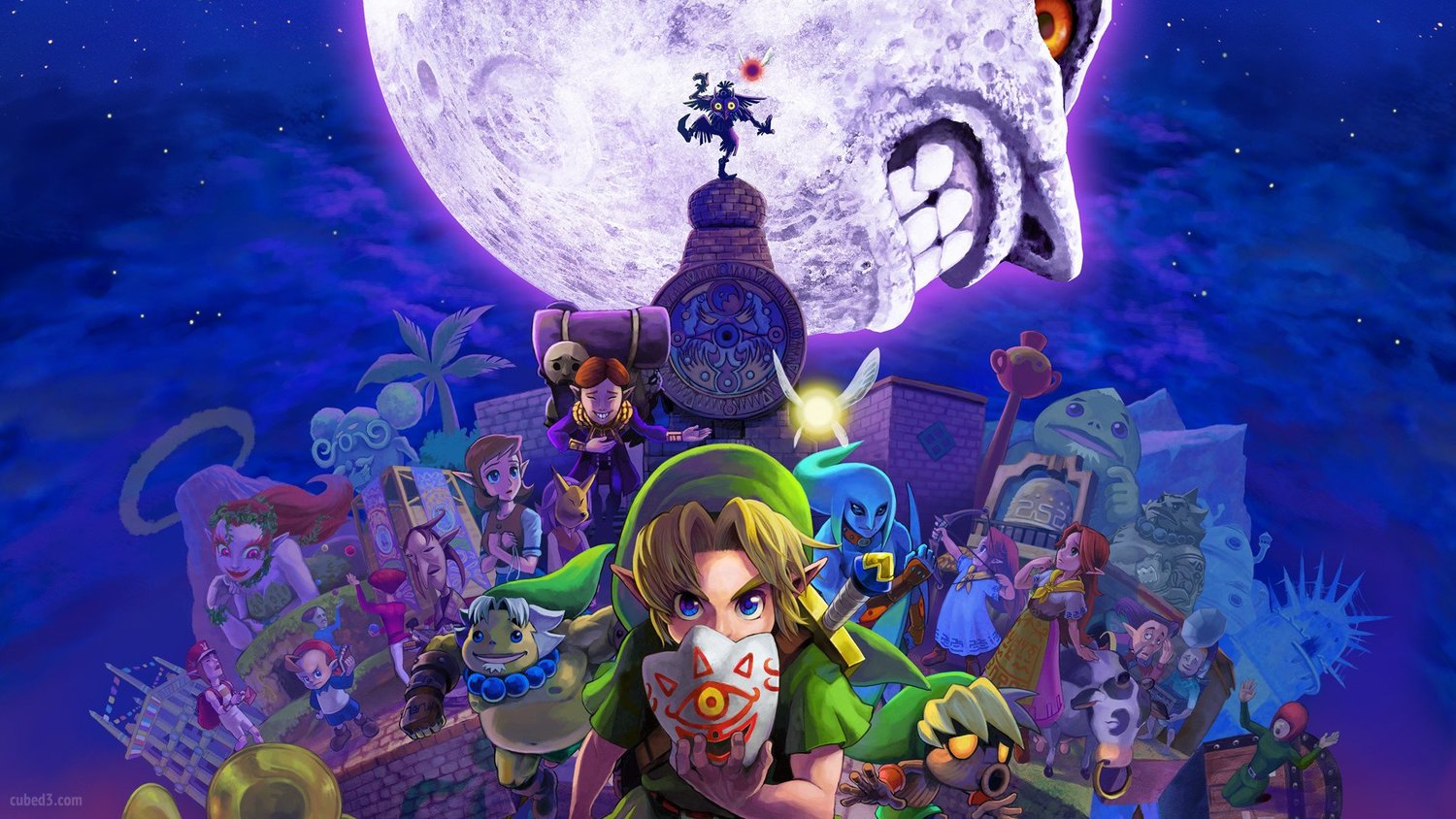Daily Debate: Which Zelda Game Has The Deepest Story?
Posted on June 14 2022 by Chakell Herbert

I’ve been replaying all my favorite Zelda games this year in preparation for the sequel to Breath of the Wild, and I find it funny that no matter how many times I play through these impeccable stories, I always take away more insights after every playthrough. After every journey, I see so many more examples of brilliant storytelling and character development. Of course, some of the greatest storytelling is accomplished in favorites like Ocarina of Time and Skyward Sword. But one Zelda game I never fully appreciated for its storyline is Majora’s Mask.
For years, I saw this dark adventure as a quirky take on a Zelda game, but overall enjoyable. It didn’t help that I thought the story was just your typical end-of-the-world tale. Plus, I was low-key terrified of it as a child (I mean, the Moon? Nightmare fuel, am I right?). Though as I’ve gotten older, I’ve realized that this story is actually one of the series’ deepest.
Every character in Termina is coping with the potential end of the world, and by reliving the same three days over and over again, Link truly gets to know these characters. He knows about their worries, circumstances, and specifically their pain. Besides saving them from an unfortunate fate, much of the game is spent making happy the people who are most affected by pain. Of course, Link saves the Gorons from freezing to death. He rescues the monkeys from the wrath of the Deku King. He frees the wandering, undead souls of Ikana and discovers what is causing the Zora’s grief, Ultimately he can save the whole land from Majora, but only by taking on side quests can the story’s emotional depth be revealed. It’s the insignificant characters who are the most significant in a way to me, because I always feel immensely satisfied by saving them or helping them with their challenges.
There’s sweet Romani, whom you help defend from “Them.” Don’t forget about the poor soldier who has been practically invisible for years on the road to Ikana whom you provide medicine to Even a simple act of service like lending a listening ear to Guru-Guru–the sorrowful carnival musician pays off with an earned emotional beat. And the deepest connection is made by taking on the winding, but oh-so worth it Anju and Kafei quest (*cries*).
At its core, this game focuses a lot on what it means to live and build relationships with others. There is so much emphasis on the small moments of service, kindness, and love we can offer those who are facing challenges. You can’t help but feel the need to help everyone you meet in this game when you hear the ding of the Bomber’s Notebook after hearing them state their problems. Link literally has a magic song that can heal souls throughout this sorrowful, yet hopeful adventure.
To me, this game’s emotional drive is even more amazing because it was developed in just a year! Majora’s Mask may be one of the quirkier games in this series, but the more I play it, the more I can see how much heart it has.
What about you? What Zelda game do you believe has the most emotional depth? Let me know in the comments!

Chakell (pronounced shuh-kell) is an associate editor for Zelda Dungeon! She has loved The Legend of Zelda series since she was a little girl because of its equal mix of princesses, besting bad guys, and heartfelt stories. Chakell lives in the overall tame state of Utah, but holds onto her childhood hopes to find an adventure in her backyard one day. She has a degree in English and is a full-time editor for a magazine. You can usually find her gaming (obviously), laughing with her husband, taking a long time to tell stories because she keeps getting distracted; getting sucked into books and podcasts; or snuggling her cute Cavalier King Charles Spaniel.



